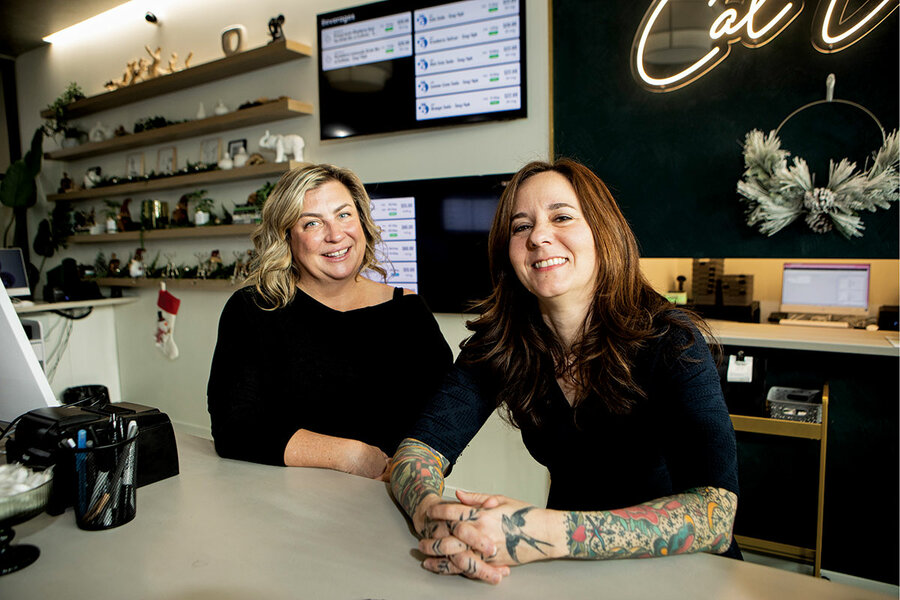Cannabis loses some of its stigma
Loading...
For many, motherhood and marijuana simply don’t mix.
So it was with some apprehension that Kelly Tomasello first considered opening a cannabis dispensary. As the mother of a young son, she wondered what other parents would think. Would they say their children could no longer come over for play dates?
Retail sale of marijuana became legal in Massachusetts in 2018. But many communities – like Ms. Tomasello's hometown of Winchester – voted to opt out. Nearby Belmont was in the process of establishing a limited number of licenses for recreational pot shops. But petitioning for one meant going on the record.
"It was a little nerve-wracking. ... Cannabis has always carried this stigma of being something terrible," she says. "I wasn’t sure if we were going to be ostracized for it."
In the end, her Cal Verde Naturals dispensary inspired more curiosity than judgment, a testament to shifting attitudes seen both locally and around the United States since a patchwork of states has legalized recreational marijuana over the past 10 years.
The jury is still out on whether legal pot helps or harms society, as Simon Montlake explores in this week's cover story. But one thing is clear: Perceptions around cannabis use – and what it might say about an individual's character – are dramatically changing.
Emma Thurston, Ms. Tomasello's business partner and chief operating officer, grew up during the height of Drug Abuse Resistance Education (commonly known as D.A.R.E.). She vividly remembers the day an officer visited her sixth grade classroom and lit something that was supposed to smell like a joint. The officer had advised the students to be on the lookout for "bad guys" and "criminals" and said he wanted the kids to recognize the odor so they could leave if they encountered it at a party.
"He lit that thing, and me and my two best friends looked at each other in terror because we knew that smell," Ms. Thurston says. "Our dads smelled like that."
She recalls struggling to reconcile the image of "bad guys" with what she knew of her father – a nice guy who provided for his family and impressed the importance of critical thinking on his children.
Now a parent herself, Ms. Thurston places a similar emphasis on critical thinking. As her three kids have come up through school, she and her husband have discouraged drug use, including alcohol, which she sees as riskier for teens than marijuana. Rather than demonizing users or deploying scare tactics, Ms. Thurston cautions her children about the consequences that can arise from experimentation.
She reminds them that neither alcohol nor pot is legal for anyone under the age of 21. And she advises waiting until they are older and have more developed senses of self-control before making such choices, leaning on her children's and their friends' experiences with caffeine to help them understand the potential for dependence.
Because, like any mom, Ms. Thurston prioritizes the well-being of her children. "What is my No. 1 job? It’s my kids," she says. "I'm just so proud of them all."








